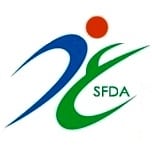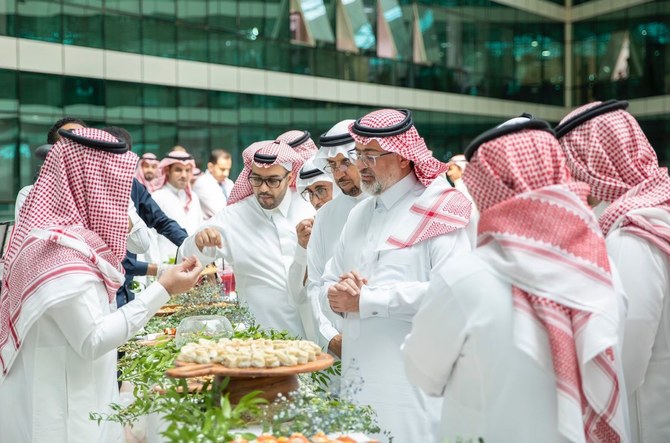RIYADH: The First International Conference on Halal Food in Riyadh concluded on Tuesday, calling on non-Muslim countries exporting food to Islamic countries to strictly adhere to Islamic regulations with regard to ensuring products are halal.
Delegates attending the First International Conference on Halal Food in Riyadh pose for a souvenir picture at the conclusion of the forum on Tuesday. (AN photo)
Riyadh Gov. Prince Sattam inaugurated the conference and a related exhibition in the Saudi capital on Sunday. The first ever such program held under the aegis of Custodian of the Two Holy Mosques King Abdullah was organized by the Saudi Food and Drug Authority (SFDA).
Making his concluding remarks, SFDA President Mohammed Al-Kanhal said countries importing halal food from non-Muslim countries should jointly present a proposal stipulating the requirements for halal food in accordance with Islamic guidelines.
He stressed that the rules should cover the right form of slaughtering of animals (not by electric shock). The form of production and additives used in the preparation should be spelled out in all food labels, supported with proper halal certification. He requested the scientific committee of the conference to prepare a set of recommendations based on the discussions during the four-day conference.
“Such resolutions should be forwarded for necessary consideration by the Muslim World League and the Organization of Islamic Cooperation,” he added.
Thanking the king for the successful conference, Al-Kanhal said the SFDA hopes to conduct the conference again in two years. He also said the conference achieved its target and affirmed the Kingdom’s commitment toward the production and distribution of proper halal food advocated by Islam.
The conference discussed seven main topics with 60 scientific papers, which included the principles of halal food, monitoring halal food, lawful additives, slaughtering of animals, and other aspects involved in halal food production.
Professor Maha M. Hadi, chairwoman of the nutrition department in Cairo University, warned that bovine growth hormones mixed with some feed may cause breast and colon cancers.
“If you eat meat, you must be concerned about what the animal or poultry were fed,” she said, adding that generally animal feed will include ingredients from different origins.
“Regarding halal and haram in animal feed, we should be concerned with the origin of each ingredient and additive used in animal feed,” she noted
Paulo Luciano, from the General Directorate for Trade in the European Commission said consumers, businesses, religious authorities in importing countries and competent certifying bodies in exporting countries benefit more when detailed requirements are publicly known and efficient controls are implemented.
Dr. Hani Al-Assaf, a specialist in the National Center for Agricultural Studies, said Muslim observers must be sent to slaughterhouses in non-Muslim countries to check the form of slaughtering carried out in those countries.



